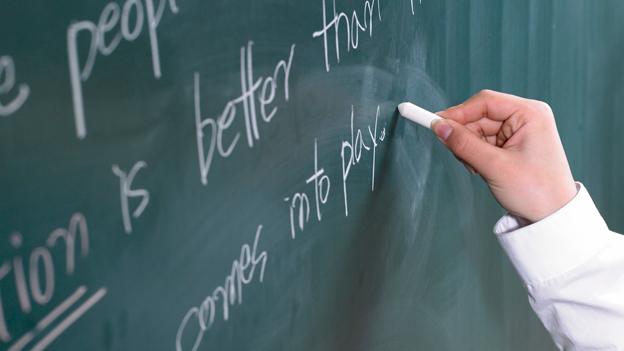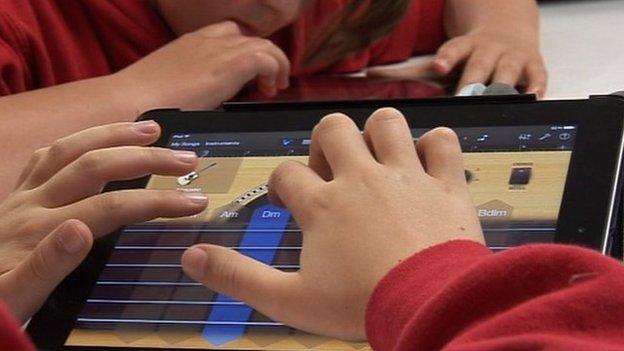Positive, profound and patient curriculum changes
- Published

Donaldson challenges the testing regime in schools
It has taken time for the report to emerge. It will take time for the report's 120 pages and 68 recommendations to be digested. But it is very welcome and could lead to profound and positive change in our system.
It is now necessary that Welsh government looks to facilitate and not dominate the discussion that is needed on what the report might mean for what we teach, how we teach and how we assess this learning.
This stepping back by government is a key recommendation that Professor Graham Donaldson makes as he reflects on lessons learnt from Wales and beyond from less than satisfactory past reforms in education.
And it will take several years before we can say that what we do in our schools reflects the report, if we choose to implement it.
This patient approach, with our teachers and school leaders, our parents and young people, leading the discussion is a very welcome aspect of the report.
Another critically important aspect is that there needs to be a proper balance struck between the curriculum - the what we teach - and assessment - the how well we are achieving that.
Donaldson is clear: assessment should be supporting the learning and not be the purpose of it. Assessment should be the servant and not the master of learning.
Our government has committed us all to an extensive programme of made-in-Wales assessment reform to GCSE, A-levels, vocational qualifications and the Welsh Baccalaureate.
The reforms are meant to reflect the skills focus of the international tests, Pisa.
We also have a separate testing regime that goes along, not very happily, with a narrow focus upon literacy and numeracy running from primary to secondary.
Jackie Parker, head teacher of Crickhowell High School said time is needed to apply the changes
These changes are being driven by the use of school accountability mechanisms that mean that our schools get measured and judged by the performance of their pupils in certain specific ways - ways that amplify the priorities of government.
'Improper balance'
Our government, like others, tends to focus on tinkering with assessment, especially at age 14-16. It is easier for government to alter things like GCSEs and A-levels, and introduce tests for skills like literacy and numeracy, because it has extensive control over these kinds of assessment.
And more importantly, government uses these assessments for school accountability.
Governments use this accountability to drive the priorities they wish to impose upon our educators. When this drive dominates other considerations, assessment becomes the tail that wags the curriculum dog.
Donaldson is very clear in saying that this improper balance between the curriculum and assessment has to change. This will be the key test for what happens next.
Will the Welsh government accept Donaldson's key recommendations and seek to facilitate not dominate discussion on possible implementation and move to a more intelligent accountability regime?
Donaldson promised us a big picture. He has given us that. There's an idea of what we might do to help prepare and educate our young people for life and work in the 21st Century.
The minister promised us a 'game-changer'. It might very well be. That depends on if, and how, the Donaldson report affects what actually happens in our classrooms.
Our educators must lead that discussion if we are to have the best chance of implementing change. After all, it is our educators who will be doing it.
Robin Hughes is the secretary of the Association of School and College Leaders in Wales.
- Published25 February 2015

- Published25 February 2015
